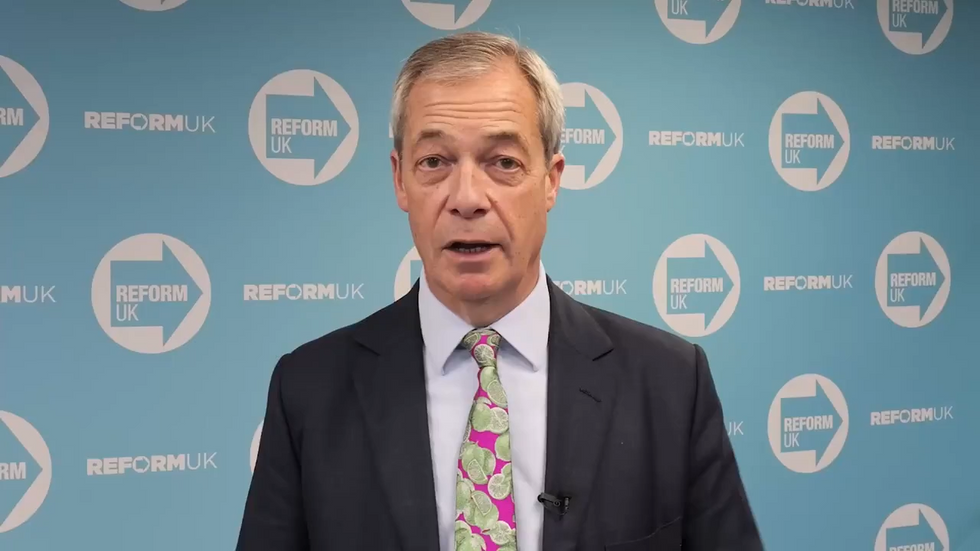Nigel Farage faces his first acid test tomorrow, but the day after will be even more perilous - Keith Bays
GB

OPINION: The climb to the top of the political ladder is perilous and fraught with danger at every turn
Don't Miss
Most Read
Latest
Since Nigel Farage took the helm of Reform UK, the party has sharpened its messaging, climbed in the opinion polls, and consistently held the government’s feet to the fire.
Many in politics, the media, and the wider public would argue that the momentum has been with Reform since the last general election, where the MP for Clacton promised to “change politics forever” after securing his seat in parliament.
So far, Farage has operated from a relatively comfortable position, with a political safety blanket, if you will, managing initially just five MPs and a small group of councillors, many of whom defected from other parties.
Even under these circumstances, the party was rocked by the Rupert Lowe controversy, a sign of the potential instability ahead, with more councillors to manage, some would argue.
The real test will come if Reform begins winning councils and mayoralties, victories that could reshape its future and influence the next general election four years from now. The party may be ahead in the opinion polls and poised for success in the upcoming local elections, but governing brings a new level of scrutiny. If Reform takes control of councils, it will shift from being a party of protest to one of governance.
The public will judge them not on promises but on performance. Managing that transition effectively will be key to maintaining momentum in the coming years.
 Nigel Farage faces his first acid test tomorrow, but the day after will be even more perilous - Keith Bays |
Nigel Farage faces his first acid test tomorrow, but the day after will be even more perilous - Keith Bays | Getty Images
Farage undoubtedly wants to secure as many council seats and mayoralties as possible. But increased power brings new challenges.
As Sir Keir Starmer has learned with Labour’s sizeable parliamentary presence, the more people you manage, the higher the risk of errors, leaks, and disciplinary issues. Reform lacks the institutional depth and experience of its main rivals, and that inexperience could be exposed.
If the British public is to consider turning away from the established parties and entrusting Nigel Farage with the keys to Number 10, they’ll first examine how Reform handles power locally. Success in running councils, or potentially the Welsh Senedd after next May, will strengthen their case.
But early failures could derail them quickly, as dramatically as Devon Loch’s infamous stumble in the 1956 Grand National. Rival parties are watching closely.
Special Advisers from Labour, the Conservatives, and the Liberal Democrats will no doubt encourage their leaders and Ministers to target Reform’s new weak spots.
 Nigel Farage is the leader of Reform UK | X/ Nigel Farage
Nigel Farage is the leader of Reform UK | X/ Nigel Farage Just as the Tories previously deflected NHS criticisms from Labour’s by highlighting their record in Wales, we can expect similar tactics if Reform gains ground.
If Reform has a strong night and secures more power locally, it will mark the start of a new political chapter, where scrutiny, not slogans, defines their success.
Reform’s policies will also face serious scrutiny. Strong rhetoric alone will no longer suffice; if voters do hand their support to the party, they’ll expect to see some serious results.
If those policies fail to deliver in areas the party controls, Reform could find, for the first time, that they are navigating the uncharted waters of unpopularity.
The party will also be forced to show its hand on a wider range of issues than ever before, opening itself up to more scrutiny and attack from rival parties.
Reform may well be poised for big gains, but the climb to the top of the political ladder is perilous and fraught with danger at every turn. Farage and his team must be ready for the battles ahead. The question is, are they?










